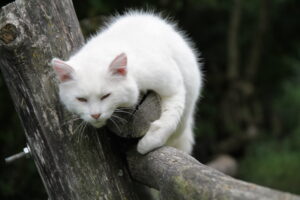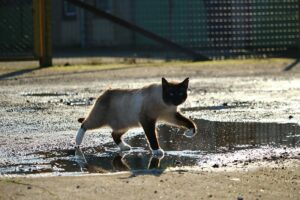How Long Can A Cat Go Without Pooping ?

How Long Can A Cat Go Without Pooping :- Constipation is a prevalent issue in cats, often manageable with simple home remedies for mild cases. However, it can also signal more serious health concerns and escalate into severe discomfort. How do you distinguish between common constipation and a serious problem requiring veterinary attention?
Understanding cat constipation symptoms, causes, and knowing when to seek professional help is essential. Here’s a guide to help you navigate the situation effectively.
How Long Can A Cat Go Without Pooping ? What Is Cat Constipation?
Constipation in cats is characterized by infrequent or challenging defecation, manifesting as hard stool, uncomfortable pellet-like feces, or a complete lack of bowel movements.
While cat constipation is typically a short-term issue, persistent cases can progress to obstruction, involving painful defecation, or even megacolon, an advanced stage of chronic constipation resistant to medical intervention.
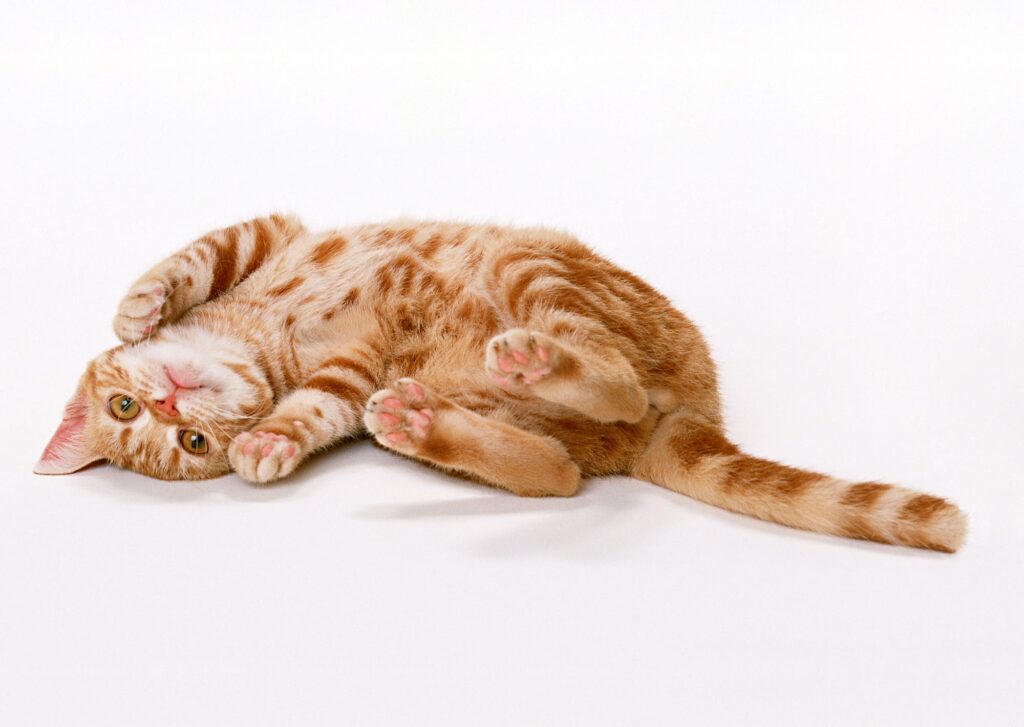
If you observe your cat straining in the litter box, it’s crucial to consult with a vet. The underlying cause may be serious or potentially fatal if left untreated.
How Long Can A Cat Go Without Pooping ? How often should a cat poop?
How Long Can A Cat Go Without Pooping ? A typical cat should have a bowel movement every 12 to 36 hours. If you observe a decrease in the frequency of your cat’s pooping or notice signs of difficulty, it could indicate constipation. While some variation in bowel movement timing is normal, if you realize that your cat hasn’t pooped in over 72 hours, it’s crucial to contact your vet for professional guidance.
How Long Can Cats Hold Their Poop?
How Long Can A Cat Go Without Pooping ? The duration a cat can hold its poop and pee varies depending on factors such as the cat’s size, diet, age, stress level, and meal frequency. Larger cats may go less frequently than smaller ones, and eating smaller meals throughout the day can reduce bathroom visits compared to consuming one large meal. Additionally, age, stress, and the type of food can influence a cat’s litter box habits. If your cat hasn’t relieved itself in two days, it’s a cause for concern, and constipation could be a potential issue.
Why do cats become constipated?
Cats may experience constipation due to various reasons, such as:
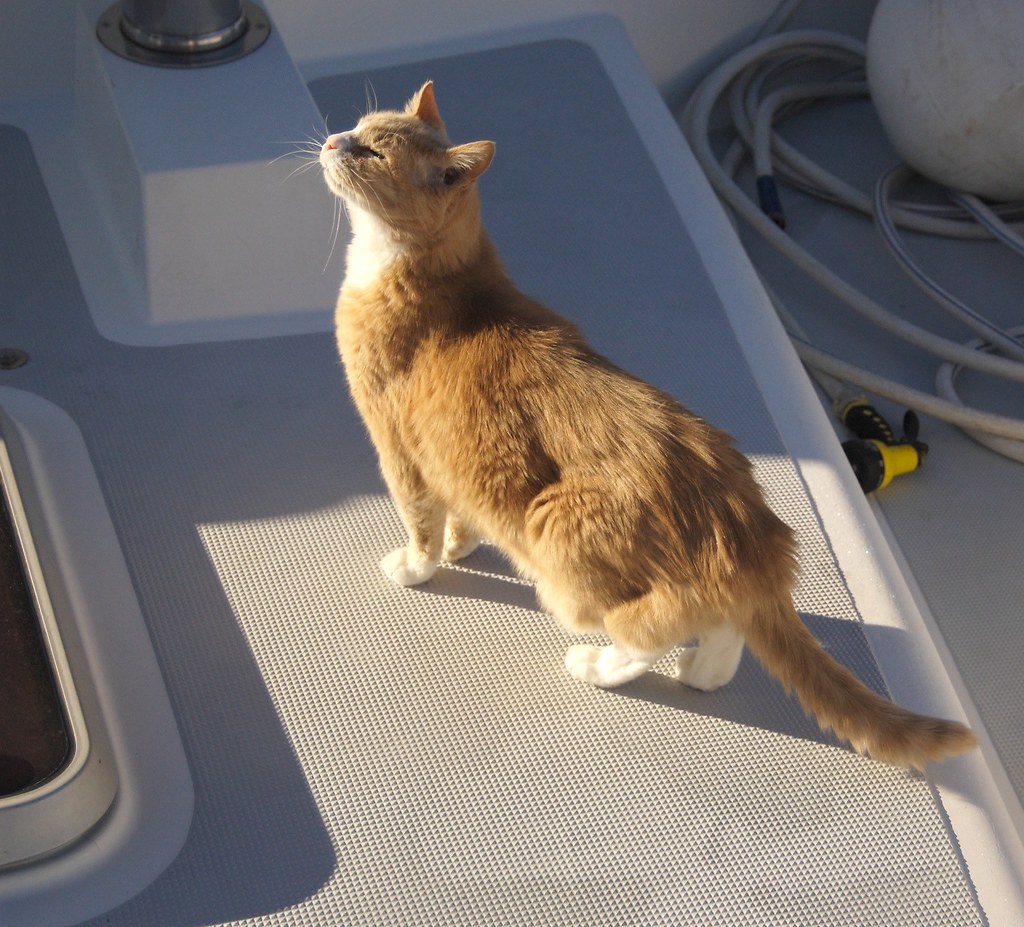
1. Not drinking enough:- Dehydration or insufficient water intake can result in firmer and drier stools, making them harder for the cat to pass. This can lead to constipation, and in severe cases, a blockage may occur in the colon.
2. Foreign bodies:- Cats that ingest inappropriate items, such as wool, thread, tinsel, or string, may be at risk of constipation. These foreign materials can cause blockages in the digestive tract, preventing the normal passage of feces.
3. Change in diet:- Alterations in a cat’s diet can sometimes lead to an upset stomach or disruptions in normal gut movements, potentially causing constipation.
4. Enteritis:- Inflammation of the intestines can impact the regular rhythm of gut movements and the absorption of fluid and nutrients, resulting in changes between diarrhea and constipation.
5. Growths:- Tumors or growths in the large bowel or rectum can obstruct the passage of stool, leading to constipation as fecal matter accumulates behind the blockage.
6. Anal glands:- Cats, like dogs, have anal glands. If these glands become full, impacted, or infected, passing stools can become painful, prompting the cat to avoid defecation, which may contribute to constipation.
How Long Can A Cat Go Without Pooping ? Vet Treatment for Constipation in Cats
How Long Can A Cat Go Without Pooping ? Constipation in cats requires prompt treatment to minimize the risk of permanent damage associated with prolonged distension of the colon. Effective treatment includes identifying and addressing the underlying disorder (if possible), eliminating impacted feces, and implementing measures to prevent recurrence.

For immediate relief, veterinarians may administer fluids and/or an enema. It’s crucial to note that administering an enema to a cat is a veterinary procedure and should not be attempted at home, as certain enemas designed for people can be toxic to cats.
Veterinarians can also prescribe medications or recommend over-the-counter solutions to manage the symptoms of constipation. Importantly, they work to identify the root cause of the constipation for targeted treatment, rather than solely addressing the symptoms.
Treatment for Cat Constipation
The treatment for constipated cats varies based on the cause and severity, as untreated constipation can progress to megacolon—a severe, unresponsive form that can be fatal.
The initial step involves removing obstructing feces, which may necessitate veterinary-administered fluids or enema. It’s crucial to emphasize that administering enemas at home is unsafe, as human enemas are not suitable for cats.
In cases of moderate or severe constipation, sedation may be required for procedures like enemas or DE obstipation (manual feces removal).
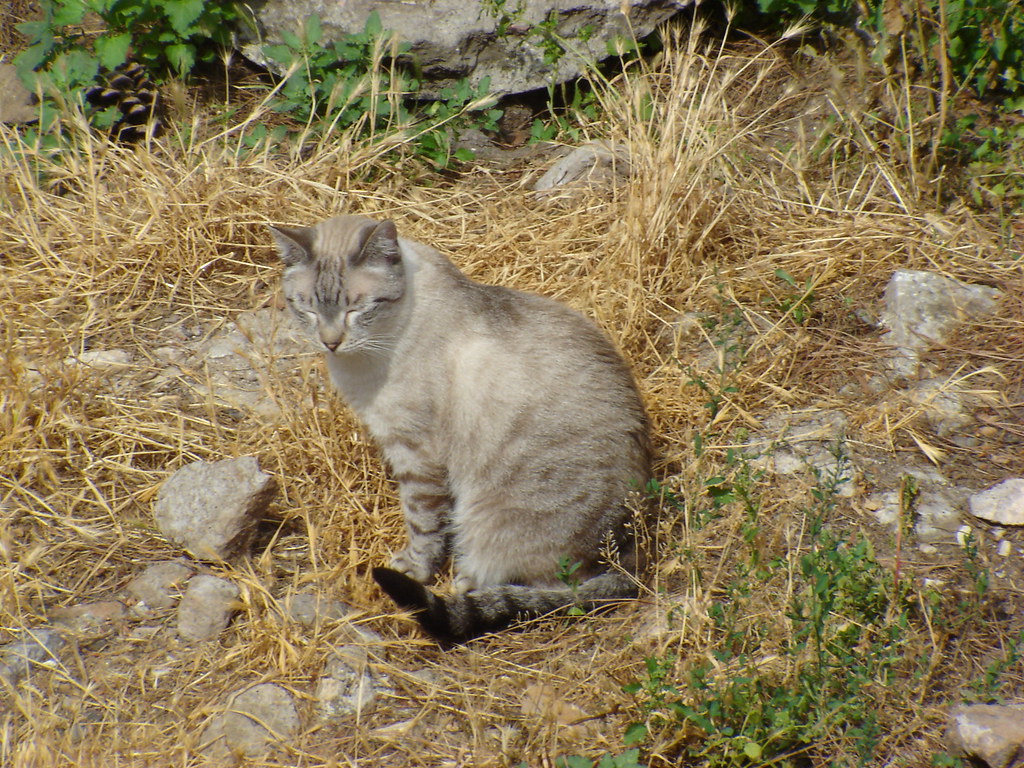
Addressing the underlying cause is paramount. Environmental changes, such as repositioning litter boxes, ensuring regular cleaning of water bowls and litter boxes, or introducing a cat water fountain, may be recommended. Dietary adjustments, such as switching to low- or high-fiber food, along with specific constipation medications, might be advised.
Additionally, treating any underlying diseases, such as kidney disease or arthritis, is essential to prevent recurrence.
Tips and Home Remedies for Constipation in Cats
How Long Can A Cat Go Without Pooping ? In addition to prescribed treatments, there are potential lifestyle changes at home that may aid in managing your cat’s constipation. However, if your cat hasn’t defecated in 48–72 hours or appears uncomfortable, immediate veterinary contact is essential.
Here are some tips to discuss with your vet that might help your cat:
1. Increase Water Consumption:- Dehydration contributes to constipation, so promoting increased water intake is crucial. Feeding wet food is an effective way to enhance water consumption. You can also encourage drinking by placing more water bowls in different areas, trying pet water fountains, or leaving a faucet dripping. Products like Hydracare™ may assist in increasing total liquid intake and maintaining hydration.
2. Try a New Diet:- Food allergies can lead to intestinal inflammation and constipation in cats. Changing the protein source in your cat’s food can reduce inflammation and facilitate normal intestinal movement, alleviating constipation. Special limited ingredient diets, prescription diets, and hypoallergenic diets are available for cats with multiple allergies. It’s important to note that a diet change may take about eight to 12 weeks to show results, so it’s part of long-term management. Consult with your vet to determine the best diet for your cat, and follow the recommended transition period when changing food.
3. Help Your Cat Maintain a Healthy Weight:- Obesity can cause intestinal inflammation, slowing down the intestines and leading to constipation. Excess fat in the belly can physically impede stool movement. Work with your vet to assess if your cat needs to lose weight and develop a suitable diet plan.
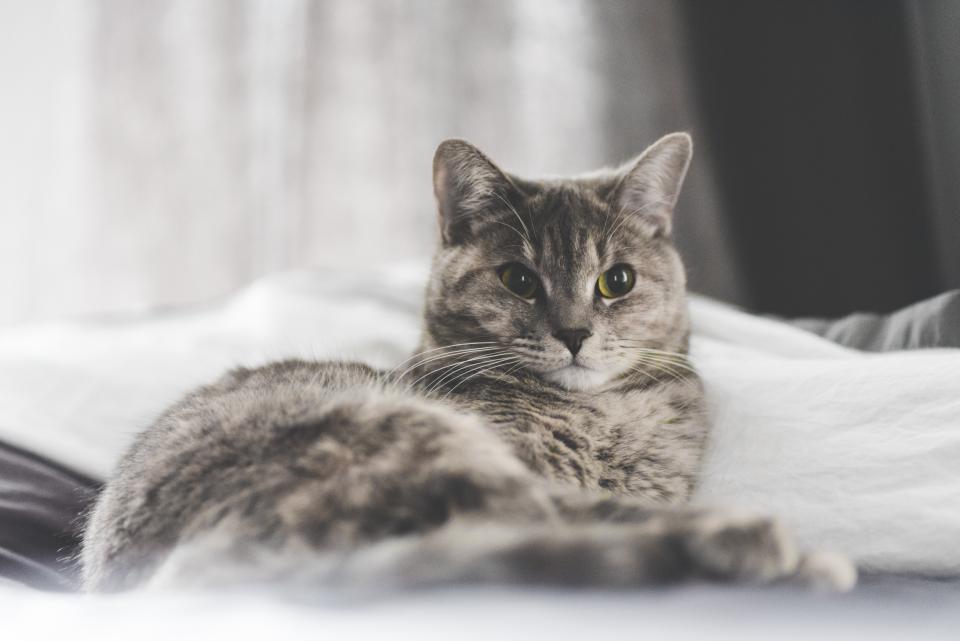
4. Increase Exercise and Enrichment:- Exercise promotes normal intestinal movement, aiding in the treatment and prevention of constipation. Encourage your cat to be more active with toys, cat trees, window seats, and additional playtime. Exercise also provides enrichment, reduces anxiety, and supports weight loss.
5. Minimize Stress and Anxiety:- Cats can experience stress when routines are disrupted. Identify potential stressors, such as new pets, moving, changes in schedule, or external disturbances. Use calming pheromones (Feliway), supplements (Zylkene and Solliquin®), or medications to reduce stress and anxiety. Time and gradual adjustments may also help your cat adapt to changes in their environment.”
Note: Always consult with your veterinarian before implementing any significant changes to your cat’s diet or lifestyle.
Visit Our Another Website Ved Sadhna
